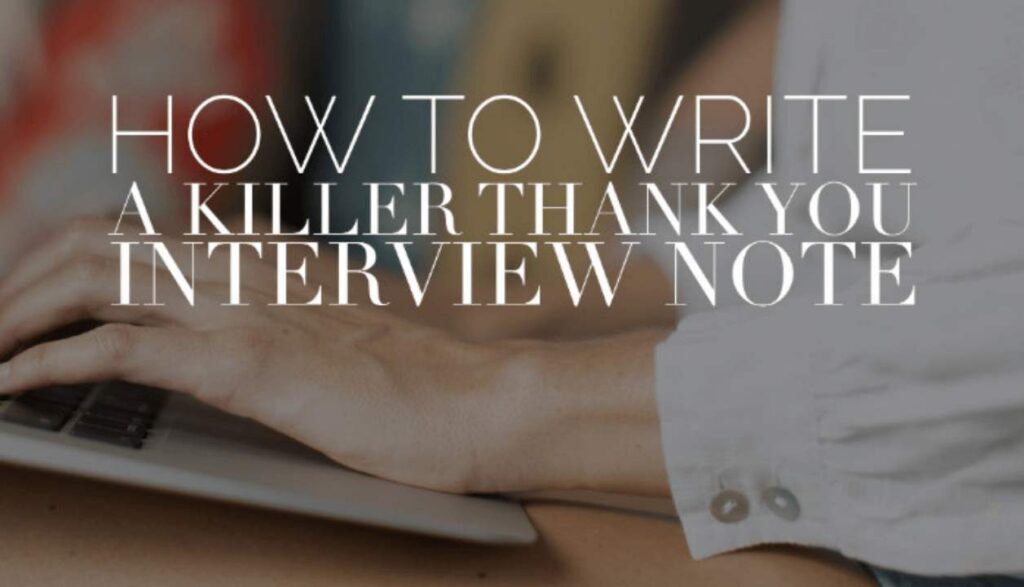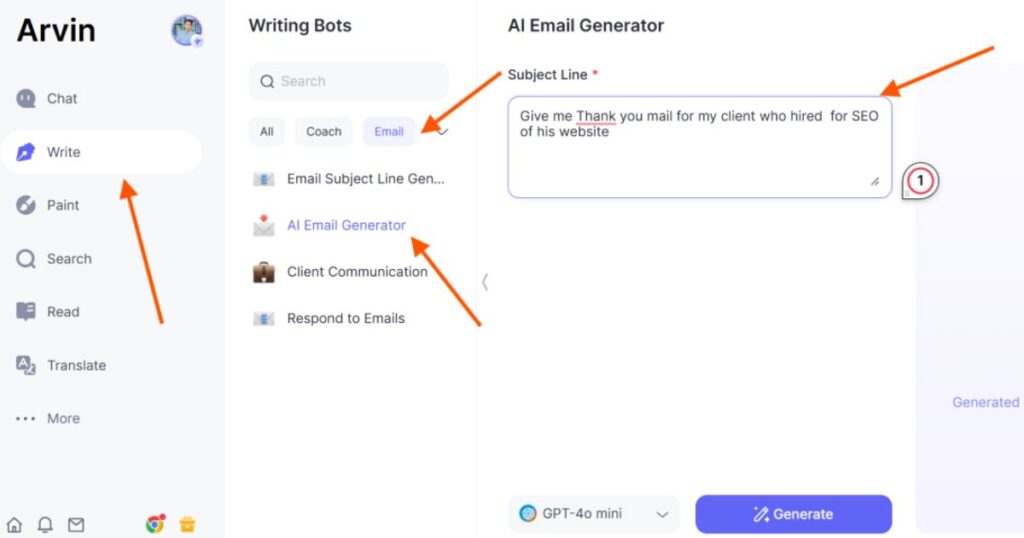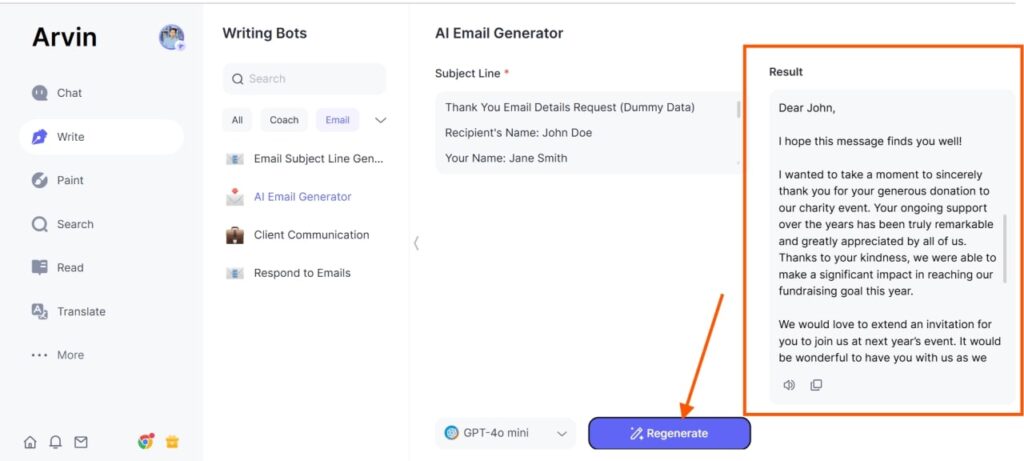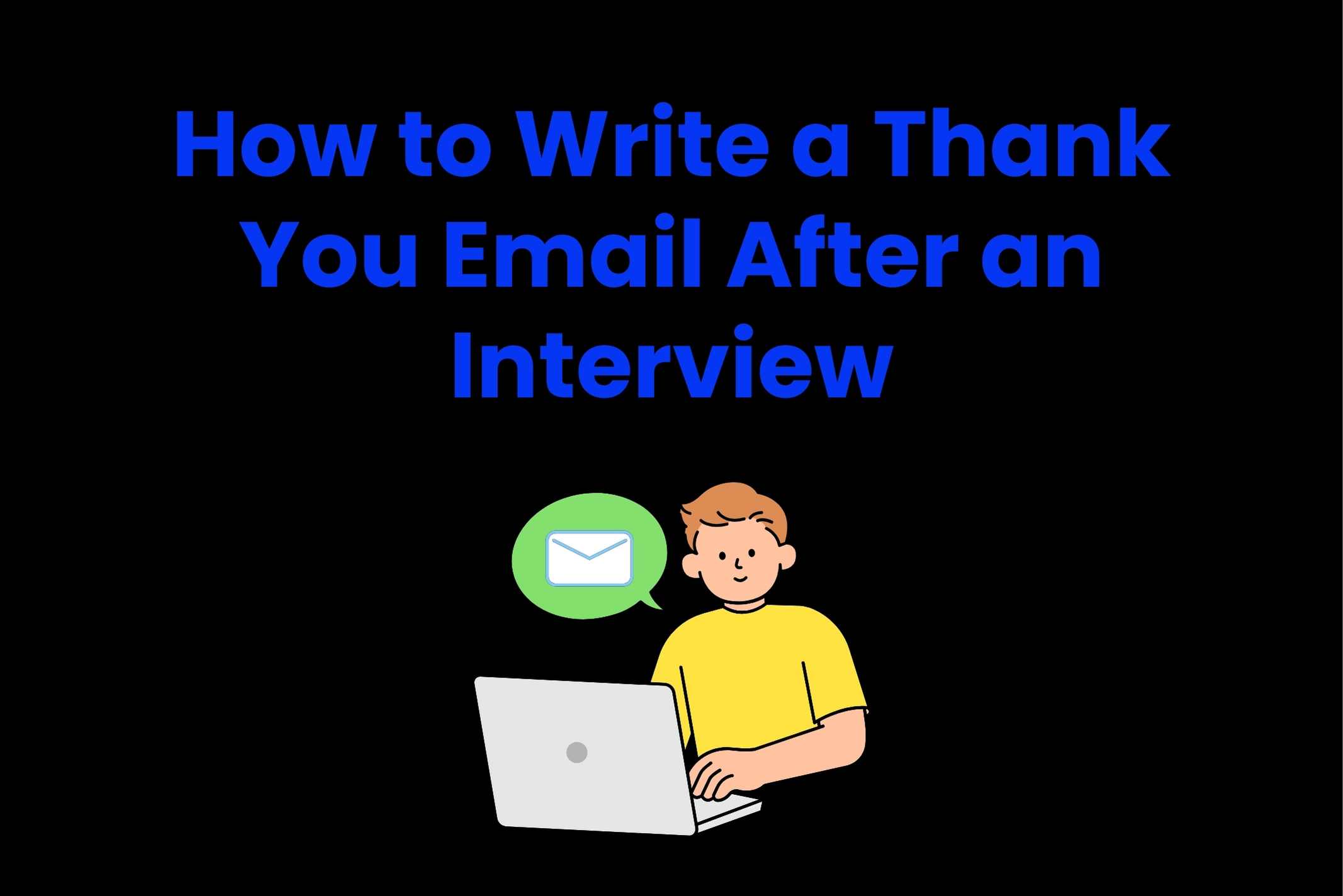Sending thanks after interview is an important step that many job seekers have overlooked. However, while it is a simple act, it can greatly increase the chances of acquiring a job. Our heartfelt and grateful emails convey professionalism, gratitude, while genuine interest in the position, and leave a positive impression on the interviewer forever. However, this article provides a comprehensive guide to how to write a thank you email after an interview. From purpose to required components, to common mistakes and technology roles, we will explain from all aspects so that you can shine in the recruitment process.

The Purpose of a Thank-You Email
How to write a thank you email after an interview? So, the thank you email after the interview is not just a polite follow-up, but a strategic tool that greatly influences the results of the application. Here’s why this step is important:
1. Reinforcing a Positive Impression
In the interview, you will have appealed your skills, experience and personality to the fullest. However, interviews can be a burden for recruiters who meet multiple candidates in a short time.
For example, a candidate may write:
“The discussion about launching your digital marketing strategy was particularly enjoyable. I was very excited to hear how my experience in analytics and creative design can support your goals.”
With this flexible approach, you can continue to be at the forefront of decision-makers while appealing your enthusiasm and attentiveness.
2. Demonstrating Professionalism and Gratitude
Thank you e-mail is a way to convey your gratitude for the opportunity, in a straight and impactful way. We respect the time and effort of the interviewer and demonstrate highly valued qualities in a professional setting.
Example:
“Thank you for taking the time to tell us about the cooperative culture of the company. It was a stimulus to learn how your team emphasizes innovation and inclusiveness. “
Whether, it conveys professionalism, gratitude and genuine interest in the organization, and is a characteristic that the hiring person asks the job change applicant.
3. Clarifying Points or Addressing Concerns
The interview is not always perfect. You may forget to elaborate on specific skills, or notice interviewers hesitating on a topic. Thank you email is a great opportunity to deal with such gaps.
For example:
“In my previous job, I led a team of 10 people, including marketing, sales and product development, to launch a campaign that exceeded my sales target by 20%. In our previous job, “Company Name,” we led a 10-person team consisting of marketing, sales, and product development to successfully campaign that exceeded our sales target by 20%.”
By doing this, you can solve misunderstandings and provide additional information to strengthen your application documents. You can also demonstrate self-awareness and proactive approaches that are evaluated as qualities of candidates.
4. Proven Impact
The importance of thank you email is also supported by data. According to a CareerBuilder survey, 22% of recruiters say they are unlikely to adopt a candidate who does not send a letter of reply. If you return the back, however the candidate who sent the thank you email is recognized as more active and professional.
Recruiters are often forced to make tough decisions. A well-trained email can be differentiated from other applicants. It is transmitted that you are genuinely interested in the job and spare no further effort, and you can proceed with the final decision.
Key Components of a Thank-You Email
After the interview, you can make a difference from other candidates. It is not just a message of gratitude, but also an opportunity to strengthen your qualities as a candidate and make an impression. Below are the details of the components that are essential for how to write a thank you email after an interview.
1. Greeting the Recipient
The opening greeting determines the tone of the email. Greeting the recipient correctly conveys respect and professionalism such as “Mr.,” “Ms.,” “Dr.” Use honorific names such as 1 correctly.
For formal interviews, use traditional honorifics such as:
“Dr. Johnson.”
In the case of casual interviews, or if the interviewer recommends a given expression, you can say:
“Hi, Alex”.
Tips for crafting the perfect greeting:
- Re-check the spelling of the opponent’s name. If you misspell the name, you can give a negative impression.
- If you are interviewed in a panel discussion, email each member individually or if the panel discussion format is informal, send an email to the entire group (e.g. “Dear Hiring Committee”).
By giving a personal and polite greeting, the exporting of emails is correct.
2. Expressing Gratitude
In the first paragraph of how to write a thank you email after an interview, thank the interviewer for his time and effort. A simple gesture of gratitude and courtesy.
Example sentences at the beginning:
“Thank you for taking your time yesterday. I really enjoyed learning about the role of sales manager and the innovative work your team is doing. “
Best Practices in This Section:
- Be specific. Personalize messages by referring to roles, dates, or interviews.
- Avoid general expressions like “Thank you for the interview.” Instead, convey pure enthusiasm and gratitude for the experience.
Admitting the time and effort spent by the interviewer will demonstrate emotional intelligence and professionalism.
3. Recapping Highlights of the Interview
This section recalls the content of the conversation and serves to enhance your attentiveness. Mention specific topics and scenes that were impressive during the interview.
Example:
“The story about entering new markets was particularly stimulating. I asked about the innovative strategies your company is implementing and I wanted to make use of my strategic planning experience to contribute to these initiatives. “
Why this matters:
- Show that you listened intently during the interview.
- Connect your skills and experiences with interviewers’ goals and challenges.
- By remembering the unique moments in the conversation, we will make your email more impressive.
A well-written summary not only emphasizes your interest, but also proves that you are suitable for your duties.
4. Expressing Continued Interest in the Position
Share your enthusiasm for the job again and explain why you think you are fit. An opportunity to strengthen your commitment to this position and match your skills with your organization’s needs.
Example:
“I was excited to talk to you and join your team. In particular, we would like to contribute to your future projects by leveraging our expertise in digital marketing and campaign strategy. “
Important Tips:
- Maintain professionalism and confidence to avoid excessive enthusiasm and desperation.
- Connect your skills directly to the position so that the interviewer can understand why you are suitable for the position.
- This section reinforces your enthusiasm and positions you as a motivated candidate.
5. Offering Further Assistance
This is a chance to show that you are active and spare no further effort. Provide additional information and documents to support your candidacy in how to write a thank you email after an interview.
Example:
“If you have any additional information I can provide, such as letters of recommendation or portfolio samples, please do not hesitate to let us know.”
Why This Is Effective:
- Show your will and support the decision-making process.
- Open the door to continuous communication and increase your awareness.
Make sure that this section is concise, but ready to support your needs.
6. Closing the Email
Let’s conclude the thank you e-mail with careful and professional ties. The words of concise and warm knot leave a good impression at the end.
Example:
“Thank you for taking this opportunity. We look forward to hearing from you. Thank you very much.
Tips for a strong closing:
- Use professional sign-offs such as Best regards, sincerely, and Thank you.
- If you have not replied to the previous email chain, please specify your full name and contact information.
The words of sophistication conclude the email with the professionalism and respect you have maintained.
Why These Components Work Together
Each element of the thank you email has its own distinct role:
- Greetings are respectful.
- Gratitude reflects professionalism.
- Re-confirmation emphasizes your involvement.
- Interest reaffirms your commitment.
- Assistance shows your initiative.
- Closing remains impressive.
By combining these elements, you can create a satisfying and compelling email.
Mistakes to Avoid When Writing a Thank-You Email
No matter how to write a thank you email after an interview, if a common mistake is included, the effect will be halved. Such mistakes can give you the impression that you lack attention to detail or are not fully evaluating opportunities. Dig deeper into these pitfalls, learn how to avoid them, and make sure your email remains positive.
1. Typos and Grammar Errors
No more misprints, grammar errors, or awkward mailing, your professionalism is reduced. Thank you email reflects your communication skills, attention to detail, and overall professionalism.
Why This Matters:
- Misprints may indicate carelessness or lack of attention to detail.
- Mistakes in grammar make your message difficult to understand or make it look like you’re in a hurry.
How to Avoid This Mistake
- Email calibration: Read the message carefully before pressing send.
- Use Tools: Using Tools Use writing assistants with AI like Arvin AI and grammarly check tools to refine your email. These tools can be finished in a sophisticated tone while fixing spelling, punctuation and syntax issues.
- Ask for feedback: If you are not confident, ask a trusted friend or mentor to check your email for misprints and difficulties.
2. Overloading Information
It is natural to want to give a good impression, but if you pack too much information, the impact of thank you mail will fade. Your email should not be a detailed summary of your essay or resume.
Why Is It Important?
- If you overwhelm the interviewer with excessive detail, it becomes boring to read the email and it is out of its original purpose.
- An unstable and long sentence of focus can give the impression that you are not able to organize and do not know the priority.
How to Avoid This Mistake:
- Be Concise: Narrow down to one or two key points, such as where you evaluate the interview and why you are excited about the job.
- Focus on Highlights: Referring to a particular scene that was impressed or echoed in the interview without steaming back the whole conversation.
- Compassionate editing: Delete valuable, redundant sentences and overly detailed descriptions. Aim to keep your email around 200–300 words.
3. Generic or Impersonal Messages
A common courtesy email can give a dishonest or lazy impression. If you use standard templates and are not personalized, you are determined to be failing to customize your message.
Why This Matters:
- The interviewer wants to feel that you have really taken your time and effort. You cannot communicate it with typed emails.
- Non-personalized emails can be mixed with other emails, resulting in a weaker impact.
How to Avoid This Mistake
- Personalize Your Email: Let’s mention the specific contents discussed in the interview, such as projects, issues, and company initiatives that personalize emails.
- Address the Recipient Correctly: Use the name and appropriate title of the recipient to write the correct address. Re-check the spelling to avoid embarrassing overlooks.
- Show Genuine Engagement: highlight the unique points of the conversation, such as insightful comments and common interests, and show that you were paying attention.
For example:
“We enjoyed talking about your innovative approach to employee training programs. The emphasis on your mentorship is in line with my own values and experiences, and I was very empathetic. “
4. Forgetting to Send It Promptly
Timing is important to how to write a thank you email after an interview. Late emails may suggest that you have no enthusiasm for the role or lack organizational skills.
Why This Matters:
- A quick email will strengthen your interest and show you are active.
- If you wait too long, the meaning of the email may fade or you may miss the opportunity to influence your recruitment decision.
How to Avoid This Mistake
- Send within 24 hours: Send an email on the day of the interview or in the morning of the next day.
- Prepare a draft in advance: If you expect to be busy after the interview, prepare a thank you email template in advance and personalize it immediately after the interview.
- Reminder settings: Use your calendar or mobile phone to remind you to send an email immediately.
The Role of Technology in Crafting the Perfect Thank-You Email
In modern times, technology has revolutionized professional communication methods. Job seekers can now use innovative tools to simplify and enhance follow-up, such as post-interview email creation. The most effective tool is Arvin AI, a state-of-the-art writing assistant designed to improve professional communication. Whether you are an experienced professional or a newcomer unfamiliar with the job market, Arvin AI allows you to create sophisticated and impactful emails that will impress potential employers.
Key Features of Arvin AI:
- Tone Analysis: Adjust the tone of your email to fit formal or casual scenes to seamlessly align with your corporate culture.
- Grammar/Spellcheck: Identify and correct grammar errors and misprints and provide professional emails without errors.
- Simplicity suggestions: Point out where emails are too redundant and suggest improvements for clear and effective communication.
- Personalization Guidance: We propose a way to include the specific content of the interview and make the email content authentic.
- Improve clarity: pursue logical flow and readability, attract attention and create professional emails.
- Customizable Tone Settings: From formal companies to creative startups, flexible tone adjustments for a variety of industries.
How Arvin AI to Write Thank you Email?
Step 1: Log into your Arvin AI account and navigate to the email generator tool.

Step 2: Enter the recipient’s name and any key details you’d like to include (e.g., event, gift, or favor). Click the generate email

Step 3: Review the email, make any tweaks if necessary, and click “Send” or copy it into your email client.
Sample Thank-You Emails
1. Highlighting a Specific Project
Subject: Thanks for giving me this opportunity
Dear [interviewer’s name],
Thank you for the opportunity to talk about your marketing manager position. I am particularly pleased to learn about your rebranding project. My background in brand strategy can greatly contribute to the success of this project. We look forward to the opportunity to bring innovative ideas to your team. Thank you.
2. Focusing on Values or History
Subject: Grateful for the Insight
Hello, [interviewer’s name],
I was very interested in your history and sustainability initiatives. I would like to contribute to such meaningful initiatives that are perfect for my values. Thank you.
Advanced Tips for Creating a Memorable Email
To create an impressive thank you email, it is not enough to express gratitude carefully. By focusing on personalization, value added and your own skills, you can remain in the interviewer’s impression. Here’s how to write a thank you email after an interview stand out:
1. Personalization
In general, rei-mails lack human taste and lack attraction. Personalization is the key to a message that resonates with the other person’s heart. Include the specific content of the interview and reflect your attentiveness and true interest.
- Mention the main topics discussed: mention the specific points highlighted during the interview.
- Use the other person’s name and title properly: Build a relationship of trust by calling the interviewer correctly and recognizing the role.
- Reflect the opponent’s communication style: Maintain the tone if the interview is formal. For casual interviews, it is effective to talk in a slightly relaxed but professional tone.
2. Add Value
An impressive thank you email is not just a message of gratitude. Providing additional insights and resources will reflect your subject and thoughtfulness.
- Share relevant content: If a specific topic or assignment has been discussed in the interview, find the relevant articles, reports and case studies.
- Propose solutions and ideas: If the interviewer mentions problems and goals in the conversation, summarize the solutions and ideas in a concise email.
- Follow up with unanswered questions: If the interviewer asks for an explanation, email is a great opportunity to answer the topic carefully.
This approach not only increases added value, but also strengthens your active stance and aptitude for duties.
3. Highlighting Unique Skills
Thank you email is an opportunity to explain again why you are best suited for your duties. Take one or two unique skills and experiences highlighted in the interview.
- Connect skills to job requirements: Connect your expertise directly to your job needs.
- Share a simple success story: Highlighting past achievements related to your job is an impactful email.
- Show enthusiasm and confidence: Show your interest in the job again while confidently emphasizing your strengths.
Conclusion
Sending a how to write a thank you email after an interview is a small but impactful step in the recruitment process. Consider using Arvin AI to make this process seamless and sophisticated. This advanced tool supports professional email creation, including tone analysis and phrase suggestions. Whether you need inspiration or a final review, Arvin AI will make your thank you email an undoubtedly impactful one.




